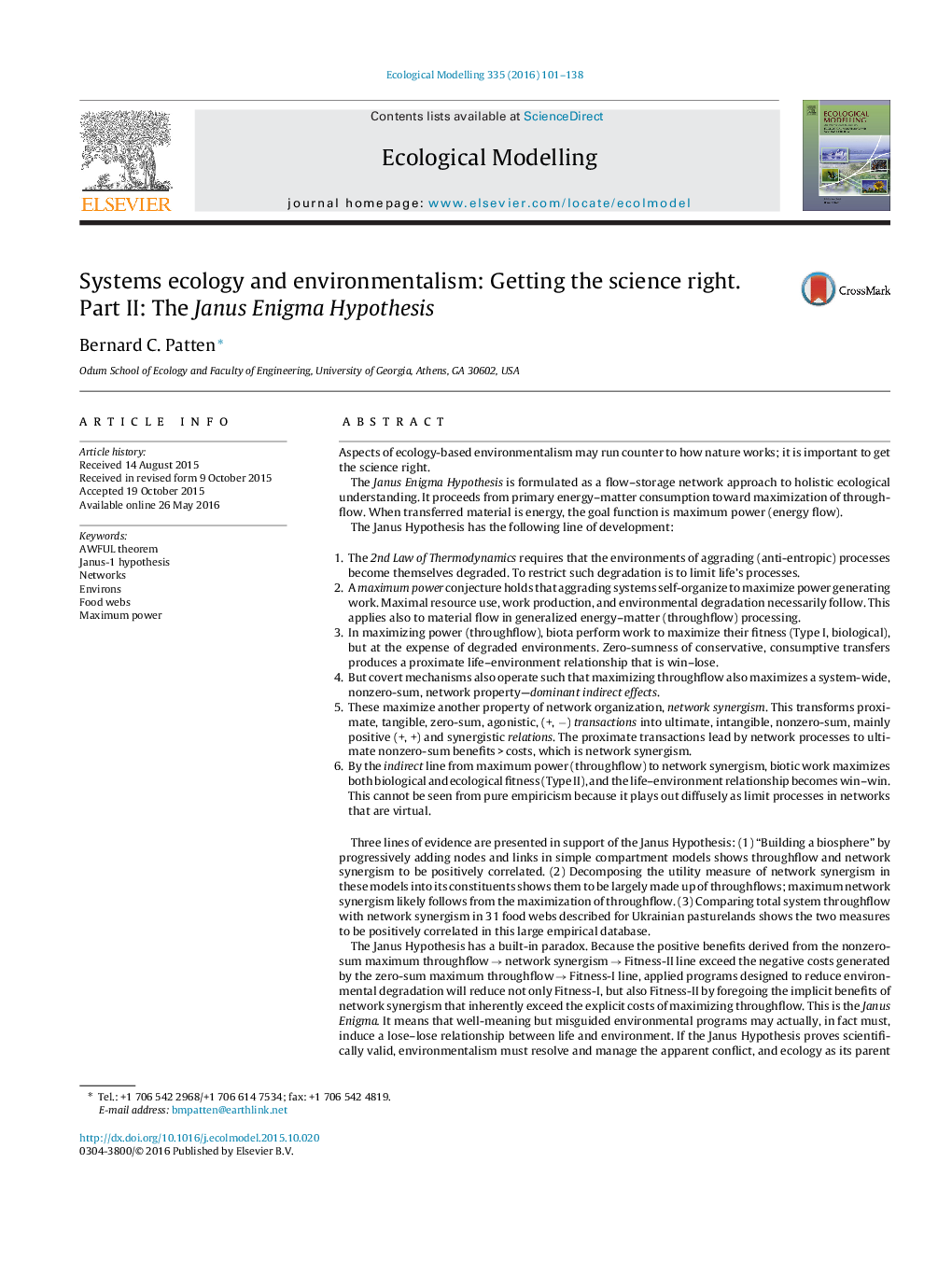| Article ID | Journal | Published Year | Pages | File Type |
|---|---|---|---|---|
| 4375544 | Ecological Modelling | 2016 | 38 Pages |
Abstract
The Janus Hypothesis has a built-in paradox. Because the positive benefits derived from the nonzero-sum maximum throughflow â network synergism â Fitness-II line exceed the negative costs generated by the zero-sum maximum throughflow â Fitness-I line, applied programs designed to reduce environmental degradation will reduce not only Fitness-I, but also Fitness-II by foregoing the implicit benefits of network synergism that inherently exceed the explicit costs of maximizing throughflow. This is the Janus Enigma. It means that well-meaning but misguided environmental programs may actually, in fact must, induce a lose-lose relationship between life and environment. If the Janus Hypothesis proves scientifically valid, environmentalism must resolve and manage the apparent conflict, and ecology as its parent science must expand its dimensions and become a complex systems science competent in understanding and methodology to meet the challenges of complex, intractable, non-obvious holism in nature's living networks.
Related Topics
Life Sciences
Agricultural and Biological Sciences
Ecology, Evolution, Behavior and Systematics
Authors
Bernard C. Patten,
